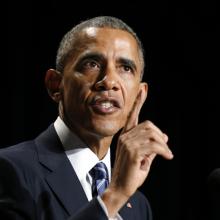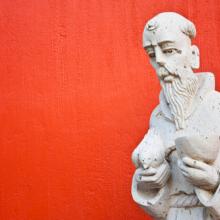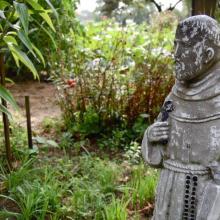crusades

Photo by Brandon Mowinkel on Unsplash
My high school alma mater is not an anti-Semitic or Islamophobic school, as far as I know. But its mascot is.
As we strive for social justice and attempt to love our neighbors, are we relying on Christ, or are we relying on the military, political leaders, the government, church authorities, institutions, and abusive ideologies?
Are we motivated and inspired by the love of Jesus, or are we driven by fear, judgment, hate, jealousy, envy, wealth, fame, recognition, and an appetite for power?

AHMAD FAIZAL YAHYA / Shutterstock
Shortly after news broke last week of the tragic murders in Chattanooga, Tenn., Muslims across the country took to social media to issue their condemnations of the shooting, including Muslim communities in Nashville, New York, the Council on American-Islamic Relations, and the American Muslim Advisory Council .
Nevertheless, an all-too-predictable wave of Islamophobia followed. Republican presidential candidate Donald Trump denounced President Obama because the president did not call the shooting an act of “Islamic terrorism.” And evangelical leader Franklin Graham posted on Facebook that “We should stop all immigration of Muslims to the U.S. until this threat with Islam has been settled.”
But as Ken Chitwood reminds us in “A ‘Radical’ Response to Islamophobia,” (Sojourners, August 2015), Christians have an important role in ending anti-Muslim discrimination. Through the liberating power of Christ, writes Chitwood, “[w]e are no longer enslaved to cultural constructions of antipathy such as Islamophobia.”
After taking heat from the religious right for saying Christians and Muslims have all committed horrors in God’s name, President Obama is now angering the religious left with an upcoming White House conference on combating ”violent extremism” that seems to focus only on Muslims.
The back-to-back controversies raise the question: Can Obama — or any president — safely discuss faith in today’s political crosswinds?
No, say experts who keep a close eye on presidential God talk. It’s a perilous walk, taken without a safety net as news and social media voices wait to savage him in a nanosecond.
Obama’s remarks at the National Prayer Breakfast triggered fury when Obama mentioned the Crusades, the Inquisition and Jim Crow segregation laws as examples of Christian violence in God’s name.
“This is not unique to one group or one religion,” Obama said. “There is a tendency in us, a sinful tendency that can pervert and distort our faith.”
I’m very offended. Or so I’m told. As a believing Christian, I’m supposed to be deeply troubled by the remarks that President Barack Obama delivered at the recent National Prayer Breakfast here in Washington, DC. Former Virginia governor Jim Gilmore had this to say:
The president’s comments this morning at the prayer breakfast are the most offensive I’ve ever heard a president make in my lifetime. He has offended every believing Christian in the United States. This goes further to the point that Mr. Obama does not believe in America or the values we all share.
Strong words. But what were Obama’s terribly offensive remarks? Here’s what the president said:
And lest we get on our high horse and think [religious violence] is unique to some other place, remember that during the Crusades and the Inquisition, people committed terrible deeds in the name of Christ. In our home country, slavery and Jim Crow all too often was justified in the name of Christ.
Wait… what? Why should I be offended by that? That’s a fact. That’s our history. Every Christian should be aware of what we are capable of when we turn our eyes away from the self-sacrificing love of Jesus and instead turn Christianity into an ideology that justifies terror, brutality, oppression, and war.
It should be impossible to study Western history without getting some glimpse into the terrifying possibilities that any religious system — including Christian ones — hold out for those who seek to dominate others. We humans have a long track record of twisting our most precious faith into a weapon of violence and hatred. This shouldn’t be a controversial statement; it should be a matter of ongoing repentance and prayer for people of faith everywhere.
So I’m confused.
Despite the fuming of a former Republican governor, President Obama didn’t offend “every believing Christian in the United States” when he noted at a national prayer breakfast that we, too, “committed terrible deeds” in the name of our religion.
I, for one, was pleased to have us called back from the “high horse” that Christian religionists often occupy when criticizing other faiths while ignoring the mote in our own eye.
In our pursuit of religious victory, we Christians have at times been a scourge on civilization. We have slaughtered many, and not just centuries ago in a safe and distant past but still today.
We have served as apologists for slavery, apartheid, racial segregation, white terrorism of blacks in the South, suppression of labor, and repression of the poor and immigrant. Some of our misguided brethren are declaring war now on women and on gays, as if God’s promise to love all of humanity needed to be ignored.
We have winked at our own scandals while presuming to judge our neighbors for their flaws. We have sought special favors — such as tax exemption — and used the benefits to serve ourselves. With the world around us descending into violence and intolerance, we bicker about doctrine and property ownership.
Our hands are stained. Plain and simple.
President Obama’s political opponents are outraged over his remarks at last week’s National Prayer Breakfast comparing Islamic violence to historic Christian violence. Jim Gilmore, former chairman of the Republican National Committee, called the remarks “the most offensive I’ve ever heard a president make in my lifetime.”
But anyone who is angry with Obama’s speech must also express the same wrath toward one of the greatest presidential speeches in American history, Abraham Lincoln’s Second Inaugural Address, delivered 150 years ago next month.
Obama used his annual remarks at the National Prayer breakfast to condemn radical Islam (though he didn’t use the term). In the process, he made some more general comments about how religion has been used — both today and in the past — to promote violence.
What has rankled many conservatives is Obama’s statement that “during the Crusades and the Inquisition, people committed terrible deeds in the name of Christ.” He then brought his historical analogy closer to home:
“In our home country, slavery, and Jim Crow all too often was justified in the name of Christ.”
The conservative Twitterverse is all riled up because at Feb. 5 National Prayer Breakfast (an event founded and run by the secretive Christian organization known as The Fellowship), President Obama said that Christians, as well as Muslims, have at times committed atrocities. His words:
“Humanity has been grappling with these questions throughout human history. And lest we get on our high horse and think this is unique to some other place, remember that during the Crusades and the Inquisition, people committed terrible deeds in the name of Christ. In our home country, slavery and Jim Crow all too often was justified in the name of Christ.”
This would seem to be Religious History 101, but it was nonetheless met with shock and awe.
“Hey, American Christians–Obama just threw you under the bus in order to defend Islam,” wrote shock jock Michael Graham. Rep. Marlin Stutzman, R-Ind., called the comments “dangerously irresponsible.” The Catholic League’s Bill Donohue said: “Obama’s ignorance is astounding and his comparison is pernicious. The Crusades were a defensive Christian reaction against Muslim madmen of the Middle Ages.”
More thoughtfully, Russell Moore, president of the Southern Baptist Ethics and Religious Liberty Commission, called Obama’s comments about Christianity “an unfortunate attempt at a wrongheaded moral comparison. … The evil actions that he mentioned were clearly outside the moral parameters of Christianity itself and were met with overwhelming moral opposition from Christians.”
Really?
Today, Oct. 4, Christians around the world remember one of the great heroes of our faith, and the current pope’s namesake – Francis of Assisi. But Francesco Bernadone (Francis of Assisi), who died on Oct. 3, 1226, must be laughing at the irony of it all.
He was one of the first critics of capitalism, one of the earliest Christian environmentalists, a sassy reformer of the church, and one of the classic conscientious objectors to war. Even though it’s hard to imagine a saint whose life is more relevant to the world we live in today, Francis was not always so popular.
Legend has it, the first time he preached at the Vatican, the pope told him to go preach to the pigs. But later the pope had a vision: the corner of the church was collapsing, and little Francis and the youth of Assisi were holding it up. Arguably that youth movement was one of the most powerful restorations of church history. While he did not hold back on his relentless critique of the church, he remained humble and hopeful. He stopped complaining about the church as it was and started dreaming of the church as it could be. As Francis said, he heard God whisper: “Repair my Church, which is in ruins.”
So perhaps it’s providential that 800 years later the pope is named after him.
As I was driving today I had the radio on scan. It filtered through the stations skipping to the next station automatically. Station after station came and went. I finally stopped it on a talk show.
I listened for a time as the host was telling anyone who would listen including me that our country is moving full steam ahead in the wrong direction. He predicted the worst and called Christians to rise up and reclaim our nation.
This was not the first time I have heard such fear mongering. Not too long ago someone warned me that our government would soon “come after churches that don't toe the party line.” Another told me that our government was out to destroy the Christian faith. I think this sounds great.
Billy Graham has always been a life-long learner, passionate about preaching the gospel but always ready to understand more about what that gospel means in the world. It was never surprising to me that this southern born and raised American evangelist decided early on to insist on preaching only to racially integrated coliseums and crusades, when many others just went along with their culture. Later, as a result of falling in love with the new congregations we was preaching too in Eastern Europe and the Soviet Union, had a "change of heart" on the nuclear arms race-which we featured in a cover interview with the evangelist in Sojourners magazine. Billy Graham has also been willing to admit his mistakes and grew from them, which is something all of us as "leaders" need to constantly learn from. And while a conservative evangelical all his life, Graham was never drawn to the hard edged and politicized fundamentalism of the "Religious Right" but instead often winced at them.
Today (Oct. 4) Christians around the world celebrate the life of St. Francis of Assisi, one of the bright lights of the church and one of the most venerated religious figures in history.
The life and witness of Francis is as relevant to the world we live in today as it was 900 years ago. He was one of the first critics of capitalism, one of the earliest Christian environmentalists, a sassy reformer of the church, and one of the classic conscientious objectors to war.
In case you haven't already seen this, it's been discovered that gunsights on weapons used by British and American forces in Iraq and Afghanistan are inscribed with coded biblical references, including:
Imagine for a minute the fallout were a Muslim high school in America to choose for its mascot "the Jihadists."
In that light, how do you think Muslims (or Jews) view Christian schools whose mascot is "the Crusaders?"
"Jesus Killed Mohammed" was written in Arabic in large red letters on the side of a U.S. Army Special Forces vehicle, armed to kill and rolling through a town in Iraq. It sounds like a bad Mad-Maxesque Hollywood adaption of the Crusades set in our contemporary context. The scene gets more chilling and horrific:
When I found out A Night of Hope with Joel & Victoria would be playing in New York City, at the brand new $1.5 billion Yankee Stadium, I knew I had to attend this concert. (Sorry, but if you charge admission, I no longer call it a worship service).
Prior to the show, Joel and Victoria Osteen held a 15-minute press conference.









